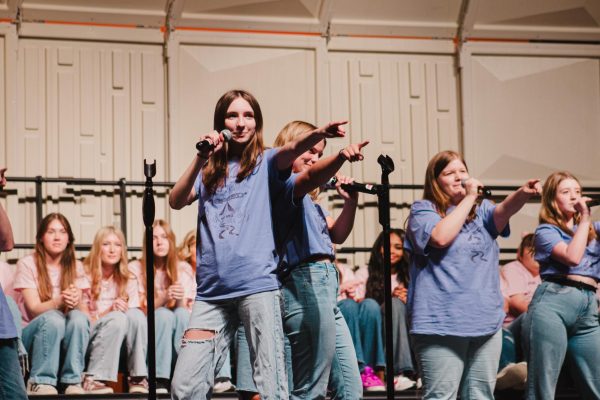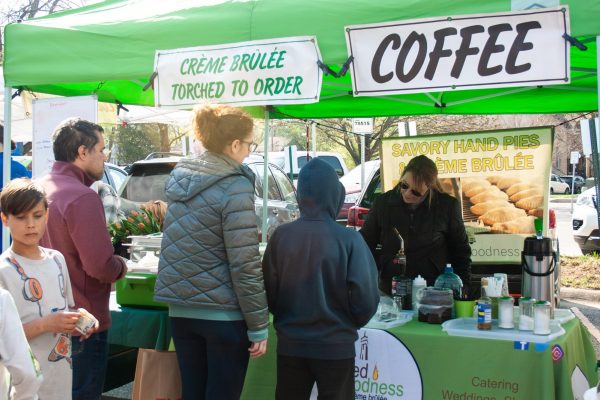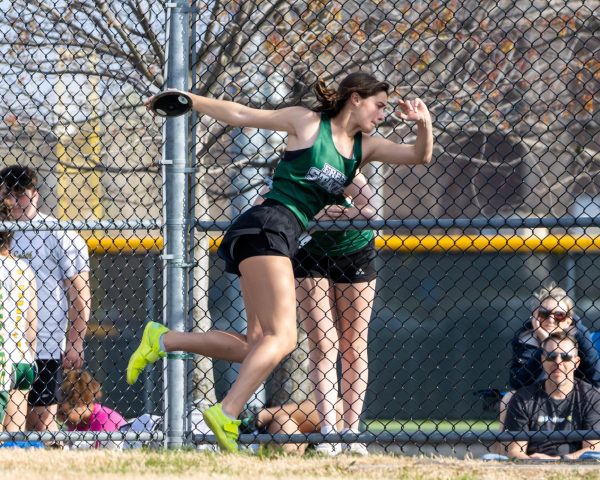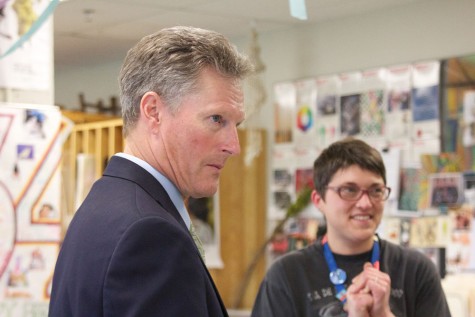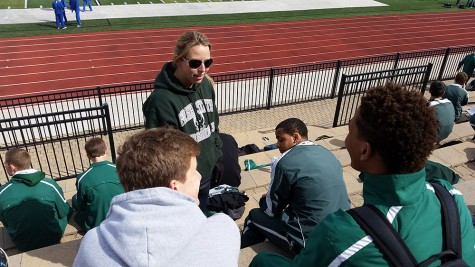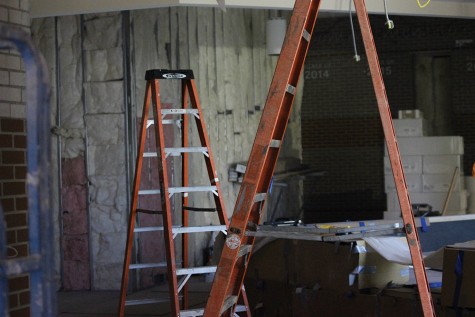We Should Talk
Staff discusses crosstown rivalry, relations
On Sept. 18, obscene images and racial slurs were left on the Lawrence High School football field before the city football showdown against crosstown rival, Free State.
The event marred relations between the two high schools and sparked heated commentary and harsh criticism from the public condensed into 140-character tweets. The weekend after the football field vandalism, a First Student bus was spray-painted with racial slurs toward Free State, inciting more social media conversation.
While the Free Press staff’s opinions are not unanimous, the majority believe these actions are serious and demand a response from the community.
Groups like Can We Talk have had “Courageous Conversations” about diversity for a number of years, but more effort should be made to have these conversations with the larger student body, and these conversations should not wait for the next racist, classist act of vandalism.
While the recent vandalism is atypical and does not represent the views of either student body, it brings to focus the real tension between the schools based on perceived race and socioeconomic status (SES) differences. While gaps do exist between LHS and Free State regarding average SES, they are not enormous.
“… About 40 percent of students at Lawrence High qualify for free or reduced lunches, and about 29 percent of the kids at Free State qualify, if you want to use that as an indication of poverty,” Superintendent Dr. Rick Doll said in an interview with members of both LHS and Free State publication staffs.
Skewed perceptions of racial and class-based differences are equally harmful. Negative and apathetic attitudes about this dynamic exist. The choice to use class and race as insults, regardless of how much diversity is actually present at either school, is an indication that some Free State students feel their perceived identity—wealthy, white and educated—is something worth boasting about.
“The whole root of racism is that people say, ‘Skin color matters, and, by the way, white matters most,’” Doll said. “It’s about power.”
In order to evaluate and potentially change these attitudes, we need to talk about them. That is exactly what the district has started doing in the last five years, in part through a two-day diversity training for staff and teachers.
At this point, 250 staff members in the district are trained to conduct “Courageous Conversations,” and Doll expects the entire district to be similarly trained as soon as possible. The measures intend to educate the staffers and create an atmosphere of diversity awareness in schools overall.
Additionally, groups of teachers at schools throughout the district are trained to assess issues within their classrooms. One such group at Free State, “The CARE Team,” consists of Principal Ed West and teachers Oather Strawderman, Cris Pittman, Carol Spring, Dana Whetter, Jordan Rose and Laurie Martin-Frydman. Others, such as the Equity Team, involve more staff.
However, these measures do not specifically involve students, the population in which the negativity appears most prevalent. Effort to engage more of the student body on a more regular basis should be increased.
We agree with Doll that these conversations should happen regularly, regardless of circumstance, in order to prepare students not only for today’s diversity, but the future’s as well.
“We want all of our kids—our poor kids, our gay, lesbian kids, our kids of color—to feel comfortable at school,” Doll said.
Your donation will support the student journalists of Lawrence Free State High School. Your contribution will allow us to purchase equipment and cover our annual website hosting costs.




